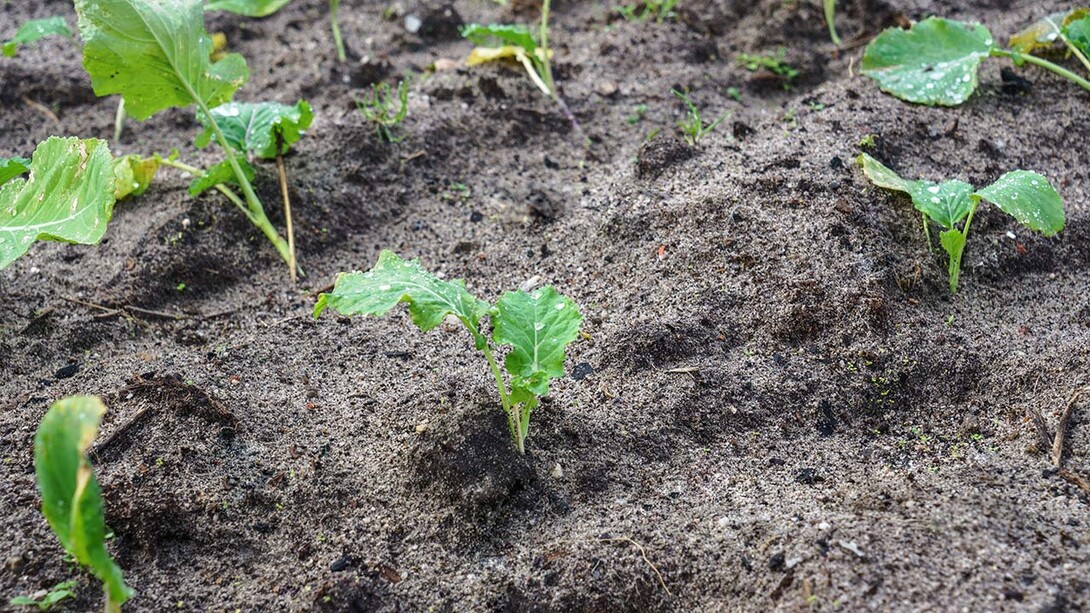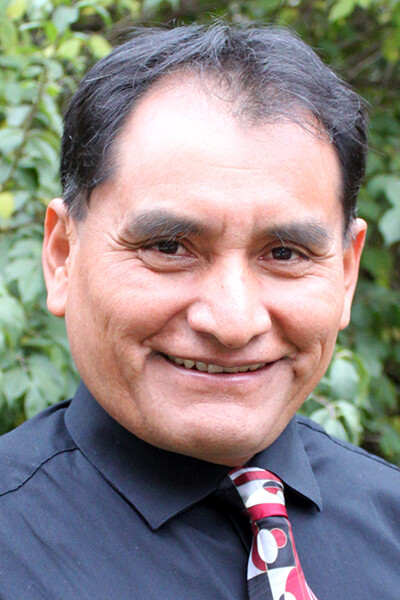
A University of Nebraska–Lincoln researcher’s team has received $1 million in grant funding for two separate projects designed to enhance the productivity and health of environmentally sensitive soils.

Humberto Blanco, a professor of soil management and soil physics, and his team received the funding for both projects from the U.S. Department of Agriculture’s National Institute of Food and Agriculture grant program.
The first project will assess the use of biochar — a carbon compound created when organic materials are heated to very high temperatures without oxygen — to enhance sandy, low-carbon-content and erosion-prone soils. The second will look at alternative management strategies of cover crops to improve soil health and ecosystem services of sandy and erosion-prone soils.
Each project received $500,000 in funding over four years, and both aim to enhance environmentally sensitive soils in a host of different ways, including through sustained productivity, improved water retention, improved water quality, reduced nutrient leaching and, ultimately, improved crop, animal and human health.
Potential impact of biochar
Since the advent of intensive agriculture, intensively cultivated soils have lost between 30% and 50% of their original carbon content. Adding biochar, which contains 50% to 90% carbon, could rapidly restore the carbon lost and help improve the soil health of intensively cultivated land. But the impact of biochar may be dependent upon soil texture and other site-specific factors, and there is little field data specific to soils found in Nebraska on the impacts of adding biochar.
Blanco and his research team will assess how biochar application at different rates affects soil properties and crop production across different soil types, including sandy, low-carbon content and sloping fields — all of which are common in Nebraska.
“There is a lot of excitement about biochar use around the globe, but many questions remain regarding its benefits,” Blanco said. “Many researchers have studied biochar in other regions, but such studies did not specifically target problem soils such as those with low carbon content, or that are sandy or sloping, which are more prone to leaching, droughts, and degradation and could benefit more from biochar than highly fertile or productive farmlands.”
The research will take place at three sites and will include both dryland and irrigated fields. Two of the sites are on working farms, which Blanco hopes offers a snapshot of how biochar performs in large-scale farming operations.
Blanco’s team will study changes in physical, chemical, fertility and biological properties of soil. They will also look at how biochar affects water and wind erosion, greenhouse gas fluxes, nutrient leaching, water storage and crop yields, and will assess the interrelationships among these properties.
Ultimately, the project will determine which benefits biochar can provide to different types of soils. Additionally, Blanco hopes it leads to the establishment of optimum biochar application rates to enhance the health of low-carbon, sandy and sloping soils. Because biochar is expensive, determining the minimum rate of biochar application required to enhance soil health, soil productivity and environmental quality is critical to show the feasibility of biochar use to Nebraska producers.
Alternative management of cover crops
Agricultural systems are faced with many challenges, including the pressures of irregular rainfall patterns. Irregular rainfall can lead to both droughts and flooding, both of which directly impact soil health. Blanco and his team will study whether altering traditional cover crop management techniques could enhance the ability of cover crops to provide ecosystem services and improve soil health.
Cover crops, in which crops such as rye and clover are grown to benefit soil health, rather than for harvest, are widely used.
“Even so, some studies show little benefit from the practice of using cover crops,” Blanco said.
There are two main reasons for this. First, most cover crop research is conducted on nearly level, highly productive soils, as opposed to those that are sloping or sandy. Second, cover crop effects on soil health can depend on cover crop biomass production.
Blanco and his team will look at whether utilizing cover crops on environmentally sensitive soils and altering planting and termination dates to increase biomass production could lead to higher soil carbon sequestration, water erosion control, nitrate leaching and improvement in other soil properties.
“When it comes to cover crops, a one-size-fits-all approach does not work,” Blanco said.
During the study, cover crops will be planted pre- or post-harvest and terminated one month before or at main crop planting. The measured field data, which includes soil physical, chemical, fertility and biological properties, water quality, carbon storage and crop yields, will be used in models for extrapolating information to regional scales. Data will also be used to perform an economic analysis based on production inputs, outputs and cover crop value-added benefits.
The project is unique because it will target sloping soils, which are susceptible to erosion, and sandy soils, which are prone to nitrate leaching. Both soil types are common throughout the Corn Belt, and improved cover crop practices could give farmers a critical new tool for both improving soil health and increasing yields.
“New cover crop management strategies could prove extremely valuable to farmers not just in Nebraska, but throughout the region,” Blanco said. “Ultimately, better, more tailored use of cover crops could lead to more sustainable and resilient agroecosystems throughout the Great Plains.”








